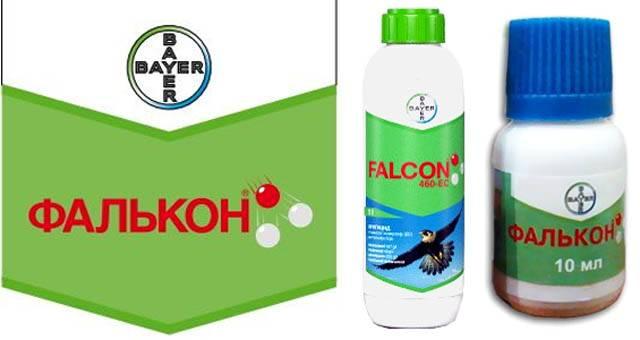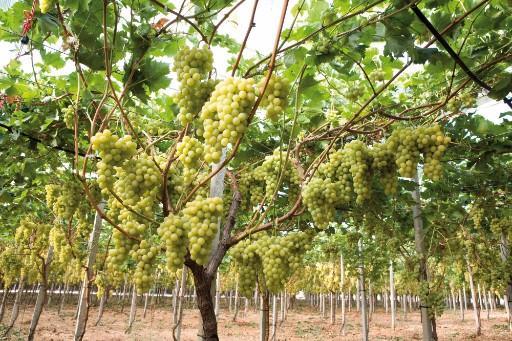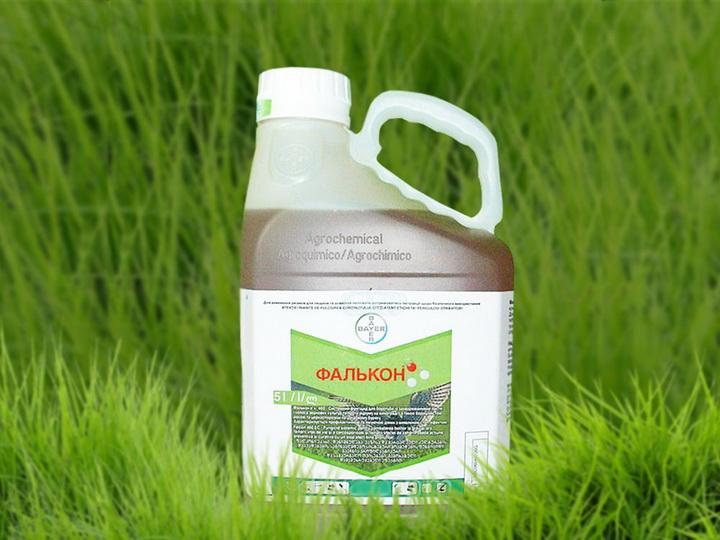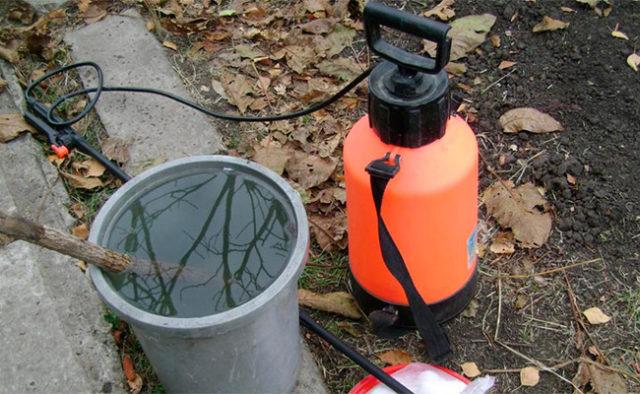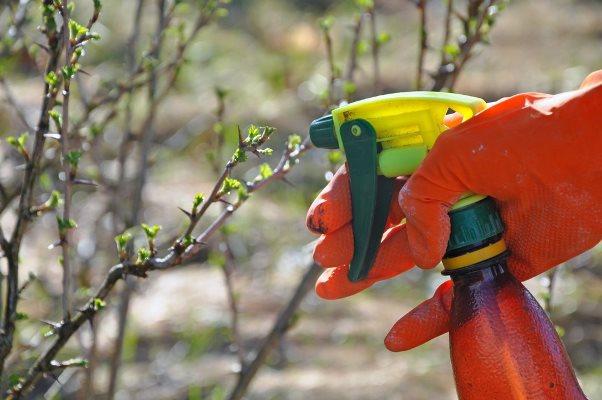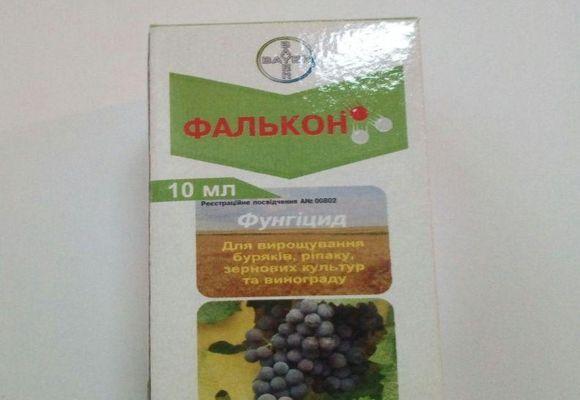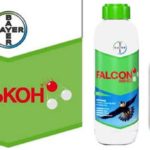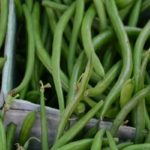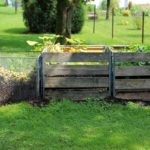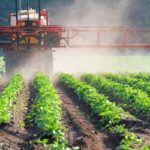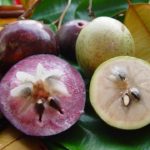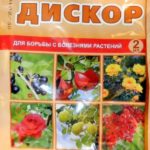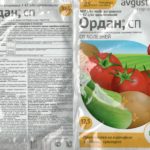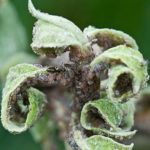Herbicides in agriculture are used to combat fungal diseases of cultivated plants. All crops need processing. Let's consider the purpose and effect, instructions for use of the Falcon fungicide for roses. Its composition, application rates and dosage of the solution for different garden crops. Compatibility with various pesticides and analogue substitutes.
- Composition and principle of action of the fungicide "Falcon"
- In what cases is it used?
- Release form and analogues
- Consumption rates and application rules
- For grapes
- For roses
- For tomatoes
- For cucumbers
- For beets
- For strawberries
- For cereals
- Safety precautions
- Compatibility with other agrochemicals
- Terms and conditions of storage
Composition and principle of action of the fungicide "Falcon"
Falcon is produced by the famous Bayer company. The composition contains 3 substances that actively act on fungi - spiroxamine in a volume of 250 g per 1 l, tebuconazole (167 g per l), triadimenol (43 g per l). They belong to the chemical classes morpholines and triazoles. "Falcon" refers to systemic pesticides by the method of penetration, and to protective and curative fungicides by the nature of action. The period of preventive action of this fungicide is 15-25 days, the period is affected by weather conditions.
It begins to act after penetration into the plant, after 2-4 hours. The protective effect of the Falcon fungicide is observed for 2-4 weeks after spraying, which depends on the level of fungal damage to plants and weather conditions.
In what cases is it used?
"Falcon", according to the instructions from the manufacturer, is used for spraying cultivated cereals and sugar beets against a complex of fungal infections, and grapes against oidium. But it is also used to process roses, tomatoes, cucumbers, and strawberries, despite the fact that these crops are not listed in the instructions.
Release form and analogues
The preparative form is a concentrated emulsion; the manufacturer bottles it in 5 liter plastic canisters. Analogues of the fungicide for spiroxamine are the drugs “Input”, “Soligor”, for tebuconazole - “Avial”, “Altruist”, “Barrier Color”, “Benefit”, “Bunker”, “Vento”, “Vitalon”, “Grandsil”, “Dozor”, “Zamir”, “Zenon Aero”, “Impact Super”, “Concord”, “Konkur”, “Custodia”, “Proscription” and others, there are no analogues for triadimenol. The best analogues of Falcon are products produced by Bayer.
Consumption rates and application rules
For each crop, the application rates for Falcon will be different.The instructions indicate in detail the dosage and rules of use for cereals and other agricultural species. Treatment against fungi can be carried out on large areas of plantings, as well as on private farms. In the latter case, ordinary household sprayers are used.
Spraying is done in calm, dry weather, in the absence of dew on the leaves. This is necessary so that the working fluid has time to penetrate the plant tissue. If everything is done correctly, 1 spray will be enough to get a lasting effect. If it rains shortly after treatment, the procedure should be repeated. Temperature conditions for using the product “Falcon” – temperature not lower than 12 ˚С.
For grapes
The grapes are sprayed with oidium 4 times in the stage before and after flowering of the vine, in the stage when the berries are small grains and formed, but green, berries. The liquid consumption is 800-1000 l/ha. The application rate is 0.4 liters per hectare, the waiting period after the last treatment is 40 days.
Thanks to the unique combination of 3 active substances, Falcon completely destroys fungi, the plants themselves do not suffer from this. But, following the recommendations of the manufacturers, you can pick berries only 1.5 months after the last treatment, not earlier. This period is necessary for the fruits to become completely safe for consumption.
For roses
The bushes are sprayed with Falcon prophylactically and at the first signs of infection, with a solution of 5 ml per 10 liters. If the damage is severe, then you need to increase the concentration to 10 ml per 10 l.
For tomatoes
The concentration of the solution is similar to that used for roses. Frequency of treatments – 1. Waiting period – 30-40 days.
For cucumbers
Treat the vines with a solution of 5 ml per 10 liters. If the damage is widespread, then the concentration must be increased to 10 ml per 10 l.
For beets
Sugar beets are sprayed against phomosis, cercospora and powdery mildew 2 times - at the stage of closing the rows and after 14-16 days. Application rate – 0.5-0.6 l per ha, liquid consumption – 300 l per ha. The waiting period is 21 days after the last treatment.
For strawberries
Strawberry bushes are sprayed with Falcon solution, which is prepared from 5 ml per 10 liters. In case of severe damage, increase the concentration by 2 times. The last spraying should be carried out no later than 1.5 months before harvesting.
For cereals
For wheat, rye and barley, the application rate for Falcon is 0.6 liters per hectare. Processing is done during the growing season. Fusarium is destroyed at the stage of heading and the beginning of flowering. The number of treatments is 1-2, the solution consumption is 200-300 liters per hectare. The waiting period is 40 days.
Safety precautions
"Falcon" refers to fungicidal preparations with hazard class 2, that is, dangerous to humans. In terms of toxicity to bees, it belongs to class 3, that is, low toxic. Based on this, it is allowed to be used near apiaries without fear of harming beneficial insects.
It should not be used near bodies of water to avoid the death of aquatic organisms and fish. It is allowed to process crops using the aviation method.
Due to toxicity, you can work with the drug only in thick protective clothing. Be sure to wear gloves, goggles and a respirator. They cannot be removed while processing is in progress. At this time you cannot smoke, eat or drink. There should be no strangers near the treated area.
In case of contact with skin, wash off the liquid with plenty of water. If it gets into your eyes or mouth, do the same.In case of accidental ingestion, drink water, take several tablets of activated carbon and after a while induce vomiting. If symptoms of poisoning are observed, immediately seek help from a doctor.
Compatibility with other agrochemicals
"Falcon" can be mixed with insecticides, other fungicides, growth-regulating drugs, and fertilizers in liquid form. But, before diluting in a common solution, you need to mix a small amount of drugs in a separate container. If no chemical reaction is observed, the products can be mixed. Otherwise, you need to find other pesticides.
Terms and conditions of storage
"Falcon" is stored for 3 years from the date of release. All this time, the liquid must be in a closed production packaging - a canister. Conditions for successful conservation are positive temperature, dark and dry room. Do not keep the drug together with food, medicines and feed for farm animals. Children and animals should not be allowed to use the fungicide.
After the expiration of the shelf life, the drug is disposed of. The solution is not stored; it is prepared in the volume necessary for processing during the day. Residues should be disposed of in a place not used for growing plants.
"Falcon" is considered the No. 1 fungicide for treating grains against fungal diseases. You can also use it in your garden plots, strictly adhering to the recommended doses.It destroys pathogens of a number of diseases thanks to its rich composition, which contains 3 active substances belonging to different chemical classes. It can be used in one crop rotation each year. It has both therapeutic and preventive effects.
"Falcon" is economical, low consumption, that is, it acts effectively even in small concentrations. Creates a protective effect that lasts for a long time. A stable effect is observed even under not very favorable weather conditions. If used according to instructions, it does not cause addiction to pathogens, this makes it possible to use it on the same crops annually. It begins to act immediately after spraying, no phytotoxicity is observed. Excellent for use with other pesticides and does not cause incompatibility.

